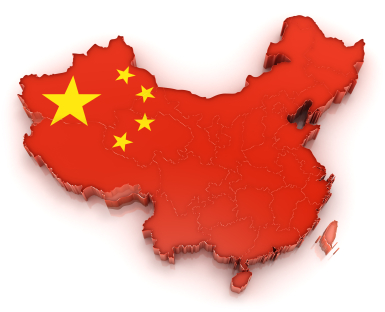Chinese Investment in Europe
 China is a rising power with interests that more often than not come into conflict with our own. As Secretary Mattis identified last year in the National Defense Strategy, we are in a new era of great power rivalry.
China is a rising power with interests that more often than not come into conflict with our own. As Secretary Mattis identified last year in the National Defense Strategy, we are in a new era of great power rivalry.
The People’s Republic of China is one of the most capable and competitive global rivals we face. China still adheres to an authoritarian philosophy with the state at the center of power.
At the center of the state is President Xi Jinping [Shee Jin-Ping], who has made himself ruler for life and has made clear he wants China to be a dominate world power that challenges the United States. Under Xi [Shee], China is building up its military power to compete with the U.S. Soon China will possess a larger naval fleet in Asia than we do and has begun establishing military bases outside of its own region.
These new Chinese outposts are positioned at strategic choke points to control international shipping lanes. The PRC does not believe in freedom of the seas or fair international order, it only believes in having an upper hand.
Much like the elites of the communist party have over their own people. They are also stealing American innovation to surpass our technological edge both militarily and commercially.
It is commonly known, that China has zero respect for intellectual property rights. But Beijing has also recognized that it can seize enormous global influence without firing a shot.
Simply by using its checkbook and offering massive loans, China can manipulate weaker states eager for investment to bend to Beijing’s will. At the center of its strategy to use economic power to gain widespread influence is China’s One Belt One Road initiative.
This plan envisions expanding Chinese exports and trade access through major infrastructure projects across Asia and into Europe. So far many central Asian states and Eastern Europe have signed on to participate.
In their view, China’s investment is an opportunity to stimulate their lagging economies. But there is a catch. With massive Chinese investment, comes Chinese control. According to a Bloomberg study, over the past 10 years, China has bought or invested in assets amounting to at least $318 billion in Europe, which amounts to 45 percent more Chinese- related activity than the U.S. in the same period.
This includes buying European ports, such as Greece’s largest port, and high technology and manufacturing firms. Meanwhile European companies still cannot gain much access to the Chinese market because of unfair business practices.
This gives China an economic edge and growing market control that is under the thumb of the Chinese Communist Party. Some of Beijing’s investments are purely about making money but others are about gaining influence over countries’ political decisions.
So far we have seen countries with significant Chinese investment are hesitant to confront Chinese bad behavior on the international stage. Including watering-down condemnation of China’s aggressive and illegal behavior in the South China Sea.
In developing countries, China has used predatory loans to force states to surrender sovereignty over critical infrastructure when they cannot repay. The same could occur in Europe.
Europe is a free and open market just like our own and should remain resistant to implementing protectionist trade policies. But with encroaching influence from Beijing, Europe— just like here—must be wary of Chinese motivations.
It is clear, China does not play fairly. It will do whatever it takes to gain strategic dominance.
And that’s just the way it is.







